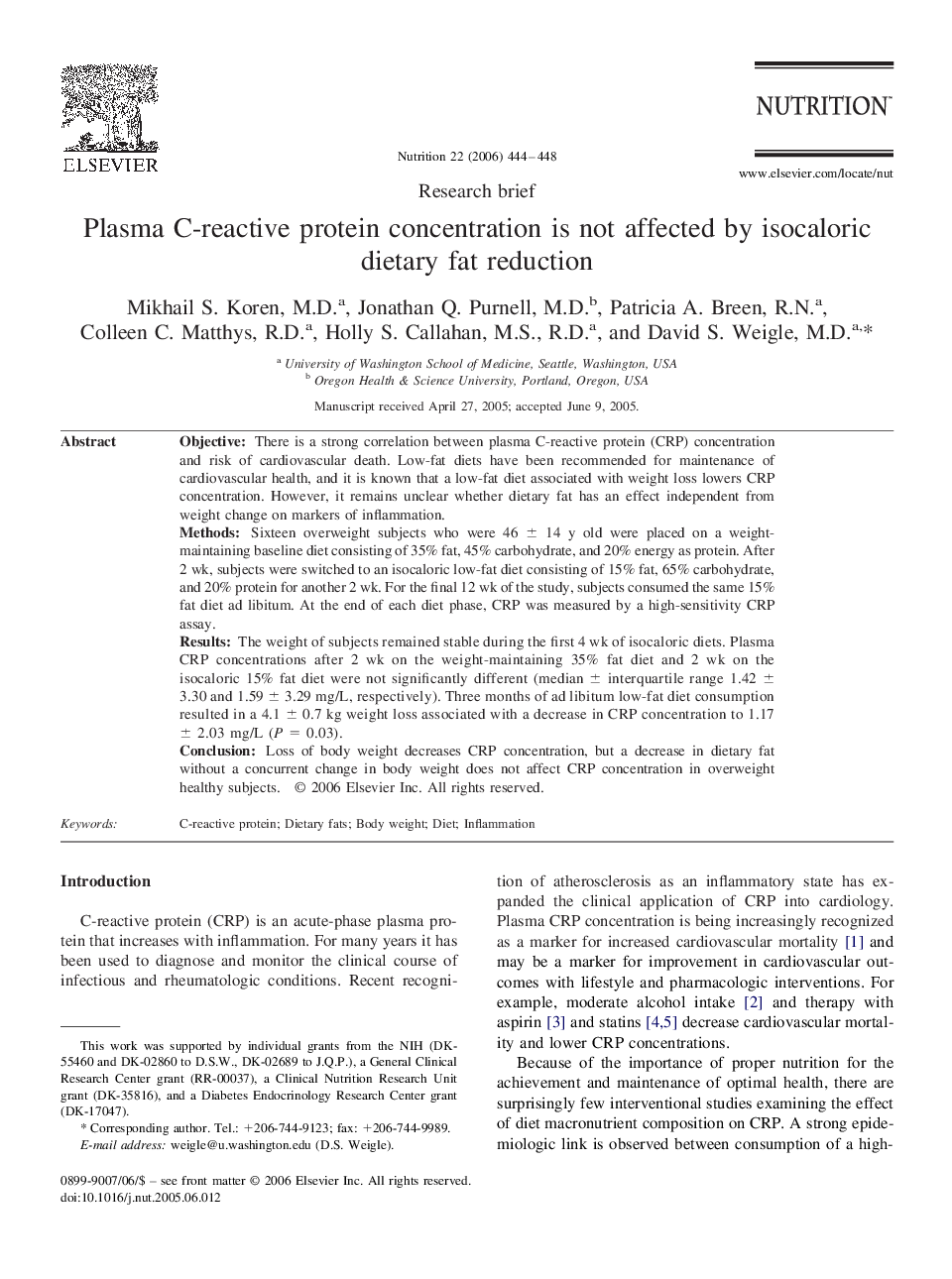| Article ID | Journal | Published Year | Pages | File Type |
|---|---|---|---|---|
| 3277858 | Nutrition | 2006 | 5 Pages |
ObjectiveThere is a strong correlation between plasma C-reactive protein (CRP) concentration and risk of cardiovascular death. Low-fat diets have been recommended for maintenance of cardiovascular health, and it is known that a low-fat diet associated with weight loss lowers CRP concentration. However, it remains unclear whether dietary fat has an effect independent from weight change on markers of inflammation.MethodsSixteen overweight subjects who were 46 ± 14 y old were placed on a weight-maintaining baseline diet consisting of 35% fat, 45% carbohydrate, and 20% energy as protein. After 2 wk, subjects were switched to an isocaloric low-fat diet consisting of 15% fat, 65% carbohydrate, and 20% protein for another 2 wk. For the final 12 wk of the study, subjects consumed the same 15% fat diet ad libitum. At the end of each diet phase, CRP was measured by a high-sensitivity CRP assay.ResultsThe weight of subjects remained stable during the first 4 wk of isocaloric diets. Plasma CRP concentrations after 2 wk on the weight-maintaining 35% fat diet and 2 wk on the isocaloric 15% fat diet were not significantly different (median ± interquartile range 1.42 ± 3.30 and 1.59 ± 3.29 mg/L, respectively). Three months of ad libitum low-fat diet consumption resulted in a 4.1 ± 0.7 kg weight loss associated with a decrease in CRP concentration to 1.17 ± 2.03 mg/L (P = 0.03).ConclusionLoss of body weight decreases CRP concentration, but a decrease in dietary fat without a concurrent change in body weight does not affect CRP concentration in overweight healthy subjects.
